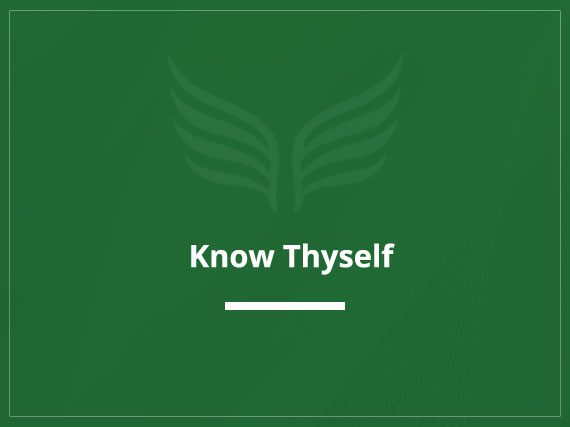2015 in Review: Year of the Personality
As 2015 has recently come to a close, our Facebook feeds are full of links to Top Ten lists and think pieces ruminating on the biggest buzzwords and trends of



There is common thread among many of history’s great philosophers and masters. Socrates said it most succinctly in his guiding principle, “Know thyself.” The Tao Te Ching stated, “Knowing others is intelligence, knowing yourself is true wisdom.” And in Hamlet, William Shakespeare wrote, “This above all, to thyne own self be true.
”While many people believe that they “know themselves,” the reality could not be further from the truth. Perhaps Johann Wolfgang von Goethe got it right about 200 years ago when he bravely declared, “Know thyself? If I knew myself, I’d run away.
”Self-Awareness: The building block of Emotional Intelligence…and organizational success
Daniel Goleman has popularized the concept of Emotional Intelligence, known as EQ. Knowing oneself is a competency at the heart of EQ.
There are four components of Emotional Intelligence, including:
1) Self-awareness
2) Social awareness
3) Self-Management
4) Relationship management
However, Self-Awareness must precede Social Awareness, Self-Management, and Relationship Management. Therefore, the most successful employees must “know themselves.” Knowing oneself means having a capacity for understanding one’s own emotions, having an accurate self-assessment of one’s own strengths and weaknesses, and displaying self-confidence.
Travis Bradberry & Jean Greaves reported that in a study of more than half a million people, only 36% can accurately identify emotions as they happen. This means that about two-thirds of people are typically controlled by emotions and lack the self-awareness and skill to use emotions to help them. This lack of self-awareness ultimately impacts organizational effectiveness.
Daniel Goleman, in his landmark book, Working with Emotional Intelligence, wrote, “Emotional intelligence is the capacity for recognizing our own feelings and those of others, for motivating ourselves, for managing emotions well in ourselves and in our relationships.” He added, “We are being judged by a new yardstick; not just how smart we are or by our training and expertise, but also how well we handle ourselves and each others.”
Study after study has revealed that individuals who know themselves operate at the highest levels of performance. For example, a study by TalentSmart found that 90% of top performers are high in emotional intelligence. Just 20% of low performers are high in EQ.
Warren Bennis, one of the preeminent experts on the subject of leadership, said, “Emotional intelligence, more than any other asset, more than IQ or technical expertise, is the most important overall success factor.”
Developing Self-Awareness
For many years, the DISC model has enjoyed wide-popularity in organizations around the world. Now, we can understand why so many people have found these tools to be beneficial. Simply put, they help people to know themselves better. These tools are designed to increase self-awareness and create an understanding of how one’s behaviors are impacting others, as well as one’s own success.
The data clearly demonstrates that Self-Awareness is key to personal and organizational success. As more and more organization’s recognize the link between self-awareness and performance, they will discover the benefits in investing in developing a workforce in which empolyees can truly say, “I know myself…and I don’t want to run away.”
Please confirm you want to block this member.
You will no longer be able to:
Please allow a few minutes for this process to complete.